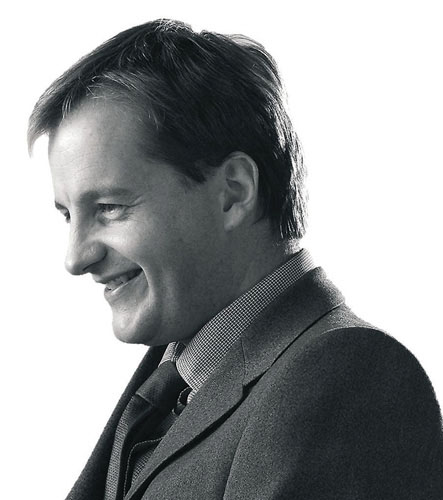Specialise in specialisation
Becoming a specialist in one industry has a great deal of advantages, but it is important to find the right niche, says Mark Pinder

There has long been a discussion among those of us who own and run design consultancies about whether it is better to specialise or be a generalist.
A number of larger design groups, such as some of the bigger UK brand consultancies, employ specialist consultants in several different business sectors. However, having a sector-specialised consultant on your books does not make your firm a true specialist. The support staff – account handlers, new business development managers, designers, copywriters and researchers – will often continue to work for clients across the full range of sectors covered by their firm’s portfolio.
We believe that true specialists work in just one business sector, as we now do for the pharmaceutical sector. This gives them a number of important advantages over their generalist competitors.
Specialists have a better understanding of what their clients are looking for, so they are able to create focused websites and sales support material. They also get to know all the major companies in that sector and can develop strategies focused on how best to target these major players and bring true value to them.
Often such specialists will employ their consultants and account directors from the client side – again, this helps them to better understand the sector and become more widely known in the industry.
Being a specialist allows them to get to know what market information is easily available to firms in the sector and what is not. The smart specialist can then identify gaps in the available information and create specific research briefs to fill them. By carrying out their own valuable independent research and coming up with information that the market does not yet have, they can become an invaluable partner for their clients and can even get to the position where they are driving the industry themselves.
Occasionally, generalist consultancies become specialists not out of choice, but because they have built up clients and experience in a particular industry, become pigeon-holed, and are unable to find work outside of that sector because of their limited portfolio and experience.
Companies that have moved into the specialist arena in this way – as opposed to starting the company with a specific industry and offer in mind – will often have a number of issues to deal with. They must make sure that their staff are happy to become specialists. Working within the same industry has its own rewards for designers, but those that have been used to working on projects from a wide range of industries can see it as limiting.
It is also vitally important to make sure you have chosen the right industry to specialise in and not one that is prone to recession or seasonal change. Pick the wrong industry and a sudden downturn in the sector could put you out of business. Specialist groups looking to target the travel, financial services, aviation and high technology industries should take a cautious approach and ensure that their business is flexible enough to be able to follow the market changes.
Working in just one industry can have its dangers, though. For example, if that industry is relatively small and led by product development, clients may well be concerned about sharing information with a design group that also works for its competitors – and from the design group’s point of view, becoming too close to any one client in the sector can also be problematic. The solution is to work across a number of different product areas. This allows the consultancy to reassure clients with confidentiality agreements in one area, while continuing to work with other companies on unrelated products.
Perhaps the most important benefit of specialisation is that the expert knowledge and sector-specific experience gained by being a specialist allows a designer to achieve recognition and respect at his or her clients’ boardroom level. This, as we all know, is vital in making sure that our work has the maximum positive impact on our clients’ business.
Mark Pinder is a director of Brand Frontier Group
-
Post a comment



